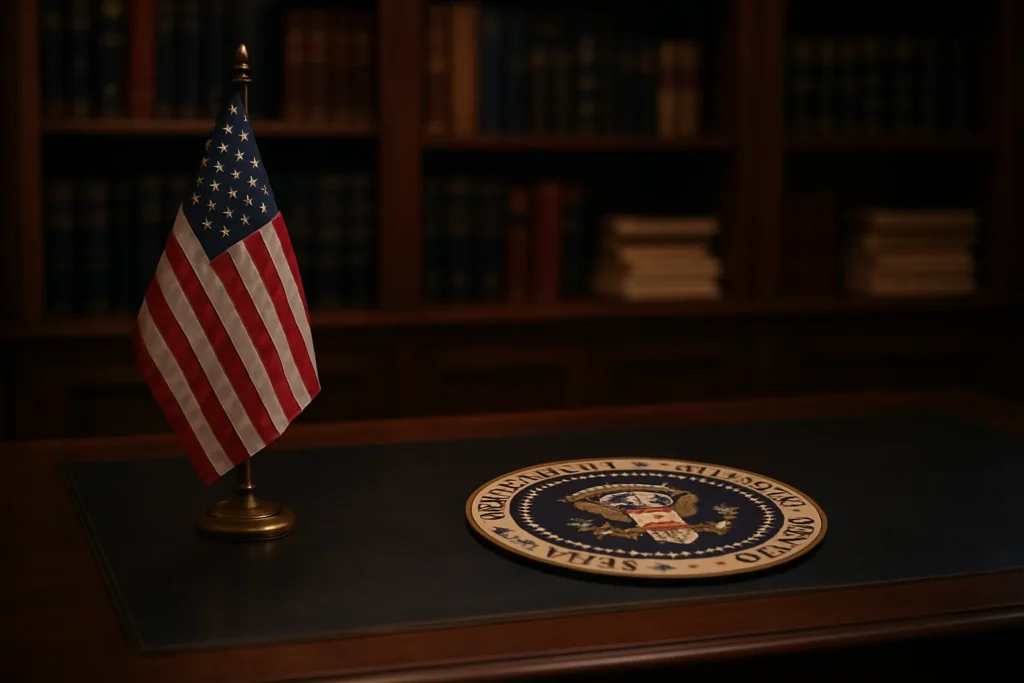Lingering Shadows: The Epstein-Maxwell Scandal and White House Responses
For decades, the names Jeffrey Epstein and Ghislaine Maxwell represented the elite and elusive corner where privilege meets impunity. Their crimes rocked the national conscience and forced Americans to reevaluate faith in the powerful. Now, the latest headline-grabbing twist—the Trump administration’s blunt denial of any clemency plan for Maxwell—highlights not only the charged political air but also the deep wounds left by one of America’s most notorious abuse scandals.
The White House, under mounting scrutiny, stated without reservation that “no leniency is being given or discussed” for Ghislaine Maxwell, Epstein’s longtime associate and accomplice. This categorical statement came after President Trump repeatedly flirted with the idea of clemency, leaving doors open wide enough to raise alarms among advocates, survivors, and the public alike. Such ambiguity previously seemed to align with Trump’s pattern of using executive power to reward loyalists and confound opponents. Consider his infamous commutations for Roger Stone and Paul Manafort, which signaled—to some—a willingness to shield those entrenched in his orbit.
Beyond that, critiques grew louder when Trump, in 2020, told the press he “wished [Maxwell] well.” The phrase, whether tossed off or calculated, hit a nerve for those demanding justice and transparency—not pleasantries for the accused. The president’s language offered a dose of doubt: Would accountability extend all the way to the well-connected, or would familiar patterns of special treatment return?
Families, Accountability, and the Temptation of Impunity
The fallout from these narratives is deeply personal for many. Virginia Giuffre’s family, bearing the pain of well-publicized trauma and her tragic death, reacted with that mixture of incredulity and outrage now familiar to millions watching American leaders sidestep fundamental questions of justice for victims of sexual exploitation. ‘Was he aware of what Epstein and Maxwell were doing to so many?’ they asked, referencing not just intimate knowledge, but the culture of silence that allowed such crimes to flourish unabated in the shadows of the powerful.
The president’s defenders cited Trump’s expulsion of Epstein from Mar-a-Lago over “inappropriate behavior toward female employees”—a detail restated by press secretary Karoline Leavitt—as evidence of zero tolerance. Yet for the millions at home, the symbolism lands hollow when paired with warm words for Maxwell or ambiguous signals about accountability. History offers too many examples—ranging from Watergate to the Iran-Contra affair—where insiders expect and often receive protection.
“For survivors and their families, the prospect of justice often feels like a roll of the dice—especially when the abusers walk among the elite.”
Public trust is brittle. According to a 2022 Pew Research Center survey, only 20% of Americans trust the government to do the right thing “always or most of the time.” Scandals like Epstein’s—and official responses to them—are part of the reason. Survivors’ advocates and legal experts, like former federal prosecutor Barbara McQuade, emphasize the corrosive impact such uncertainty has on public faith in justice. When clemency appears as a bargaining chip, it reinforces suspicions that the privileged play by different rules. McQuade notes, “The signal sent, intentionally or not, undermines the very foundation of accountability.”
A closer look reveals that Maxwell’s own reported offer to testify before Congress—on the condition of full immunity—has sparked a fierce debate. Is this a cynical trade seeking to skirt responsibility, or a practical way to gain critical testimony about networks of abuse? Congressional leaders from both parties remain hesitant, with many progressives arguing against any immunity deal that would short-circuit meaningful consequences for those complicit.
America’s Reckoning: Justice, Power, and Transparency
As government officials scramble to clarify their positions, the story becomes far bigger than one potential use of presidential power. What does the persistent rumor mill—and the White House’s need to tamp down speculation—say about democracy’s ability to confront elite wrongdoing?
Some on the right frame the denial of clemency as evidence of the president’s independence from his wealthy peers. Yet progressive critics remain deeply skeptical. Trump’s documented tendency to “leave the door open” until public outcry forced clarity fits a pattern. Political expediency, they argue, is an unreliable safeguard against injustice—especially when lives are at stake and public trust hangs in the balance.
Transparency is crucial. Calls for open investigations and public hearings—without deals struck behind closed doors—grow louder. Democratic leaders have made clear: Accountability should not succumb to the gravitational pull of privilege or partisanship. Harvard law professor Laurence Tribe insists that “the law cannot work if it bends differently for those with the most lawyers and the fewest scruples.”
Looking ahead, the outcome of the Maxwell saga will be read as a litmus test: Can America finally dismantle the old, corrosive assumptions that shield abusers if they are famous or powerful? Or will the fight for justice remain, yet again, unfinished—another page in a saga of cruelty and cover-up? For progressives and anyone invested in fairness, the answer to that question speaks to the heart of who we are, and who we aspire to become as a nation.

